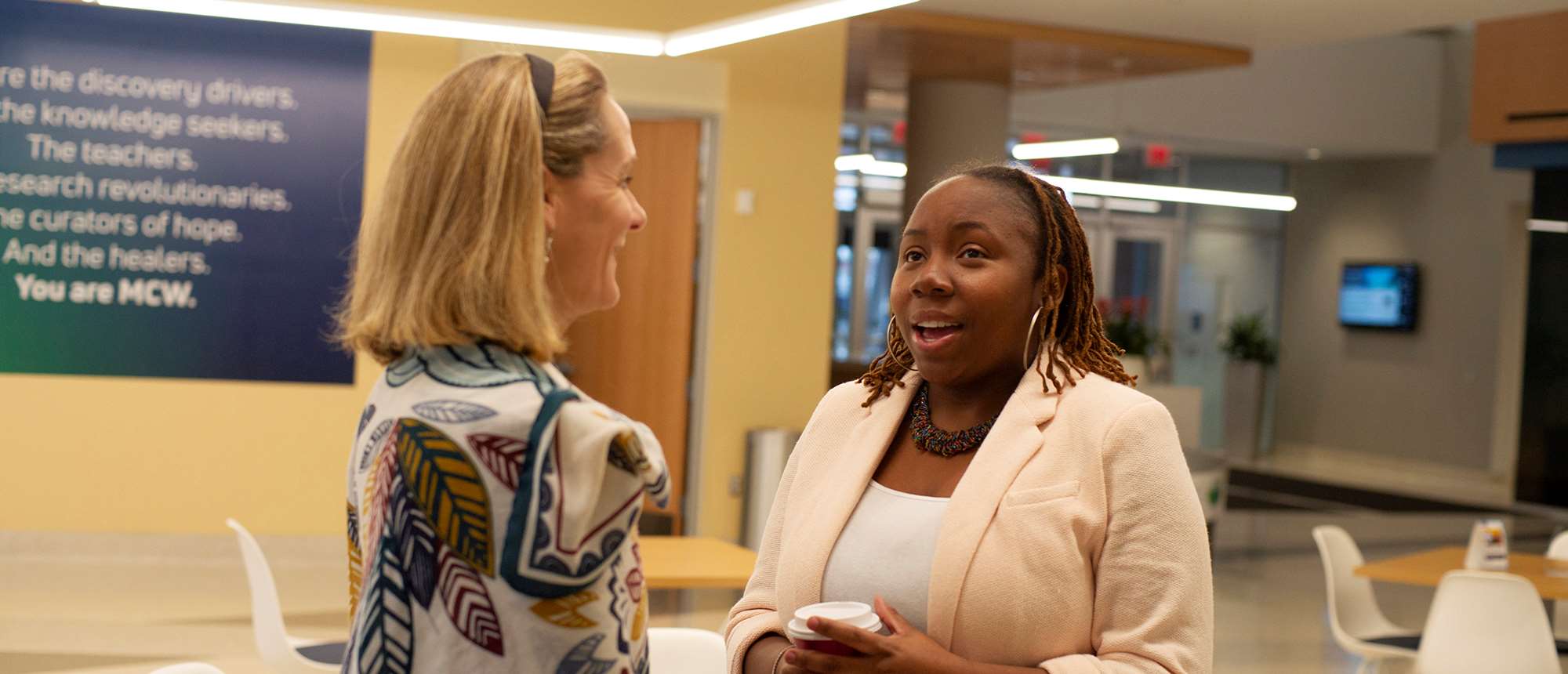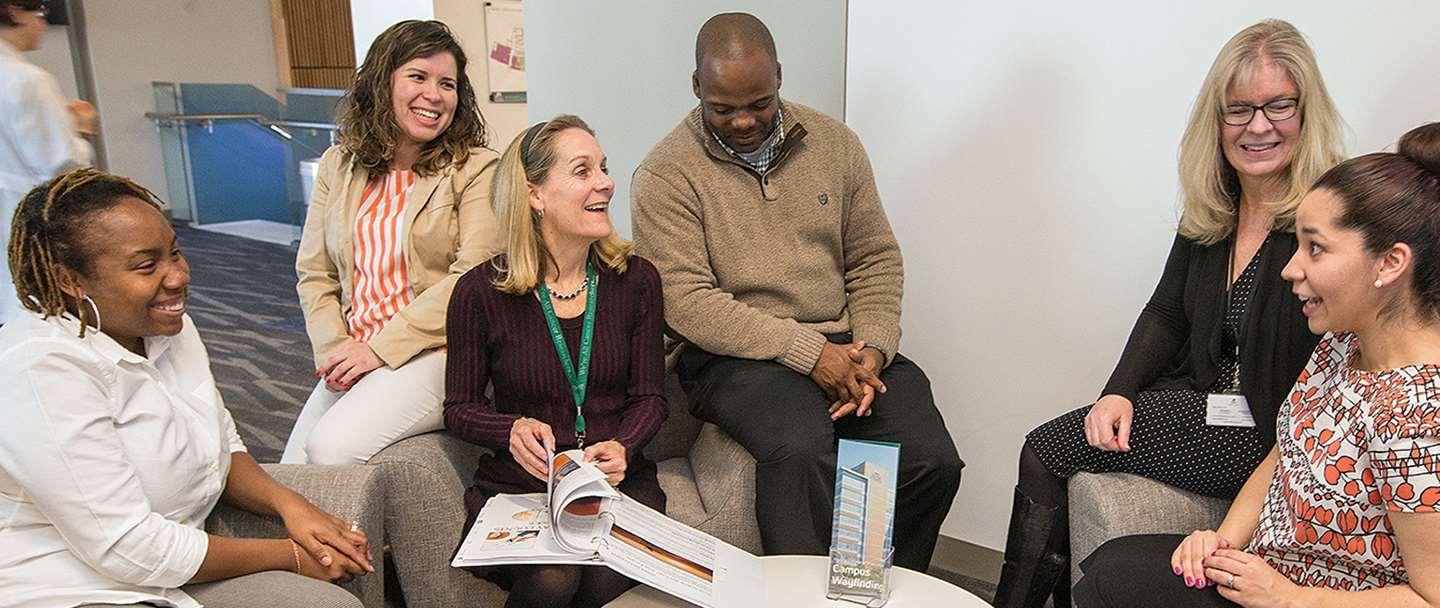Understanding Cancer Disparities in Milwaukee
Lauren Matthews is helping to lead a project that digs deeper into the underlying causes of these disparities and subsequently addresses these issues in the African American community.

When Lauren Matthews, MPH, arrived at the Medical College of Wisconsin in 2016, one of the first tasks assigned to her was to examine factors that contribute to cancer disparities in Milwaukee. Matthews, community program coordinator for the MCW Cancer Center’s Cancer Prevention and Outcomes Program, working under the guidance of Melinda Stolley, PhD, began her research by looking at data from the Froedtert & the Medical College of Wisconsin Cancer Registry. The maps, created by Kirsten Beyer, PhD, assistant professor of medicine in the division of epidemiology, look at breast, lung, colon and prostate cancer. What Matthews saw when she looked at the maps was troubling.
“I saw areas where there was a high incidence of cancer and also high mortality rates, and those areas were all in predominantly African-American communities,” Matthews says.
Although researchers already know some of the factors that lead to cancer disparities for African-Americans and cause more aggressive forms of cancer, including stress, income, lifestyle and types of food you eat, other factors are less clear, according to Matthews. To make full sense of those numbers from the Cancer Registry and understand why African-Americans in Milwaukee were suffering from cancer at much higher rates than others in the city, Matthews and her team, supported by a racial justice and equity grant from the Greater Milwaukee Foundation, had to dig deeper.
Visiting churches, community centers, libraries and other locations in the city, the team was able to gather nine focus groups in the Milwaukee area. They conducted in-depth qualitative interviews, which shined light on topics including individual experiences with cancer screening, knowledge of cancer disparities and what participants believe constitutes a healthy community. The groups consisted of both cancer survivors and those who didn’t have cancer, and one group was only for men and focused on prostate cancer.
“Everybody was extremely transparent in those sessions, and they were able provide important insight on the issues we were examining,” Matthews says.
The research revealed that many of the men hadn’t been screened for prostate cancer until their 60s, rather than the recommended age of 45, she explains. In response to that and other findings from the research, MCW began hosting prostate health education meetings and free cancer screenings for African-American men. The project also has garnered additional support in the form of a grant to fund a lifestyle program for 200 survivors of prostate cancer. The program, “Men Moving Forward,” will begin this year, according to Matthews.
The work in Milwaukee to examine cancer disparities in communities of color drew attention at a prominent national conference recently. The poster Matthews presented, “Promoting racial equity and inclusion in Milwaukee - Understanding and Reducing Cancer Disparities,” won first place as the best poster presentation abstract at the American Public Health Association’s Annual Meeting and Expo, which is the largest and most prominent annual gathering of public health professionals in the country.
The poster points to a need for a need for more accessible information on cancer screening guidelines, including at what age you should take specific tests.
“That type of information needs to get beyond the Medical College of Wisconsin and community organizations,” Matthews says.
Other findings in the presentation include the role that patient-doctor trust and access to quality care plays in disparities.
The recognition of the work at a national conference was extremely rewarding for Matthews, as has been the feedback her team has received from the community about the project. The team received much of this response by sharing the findings from the study with the community through a town hall hosted at the Black Historical Society and other events. The key, according to Matthews, is that the community has taken the lead in identifying what their needs are and continues to be involved in every step of the process.
“We’re involving the community from the very beginning. People really appreciate that and have let us know that,” she says.
Matthews’ research advisor and principal investigator, Dr. Stolley, professor of medicine and associate director of the MCW Cancer Center, lauds Matthews’ aptitude to build trust with the community as paramount to her success as a researcher.

“Lauren has a tremendous ability to engage with others and to establish partnerships where there is mutual respect for both parties,” Dr. Stolley says. “She is a natural leader. When she decides to do something, despite the challenges involved, she will find a way to work with others to accomplish the end goal.”
Matthews also greatly appreciates the support from MCW and the Cancer Center’s Cancer Prevention and Outcomes Program. The program has three aims, according to Matthews: education, including internships and mentoring of young people of color, outreach into the community and research. And while the work and the long path toward reducing cancer disparities for African-Americans in Milwaukee will continue, Matthews has no doubt they’re on the right track and have the support of the right organization.
“MCW is giving us the platform to share this information,” she says. “When people hear the name, they know the level of excellence that we bring.”



